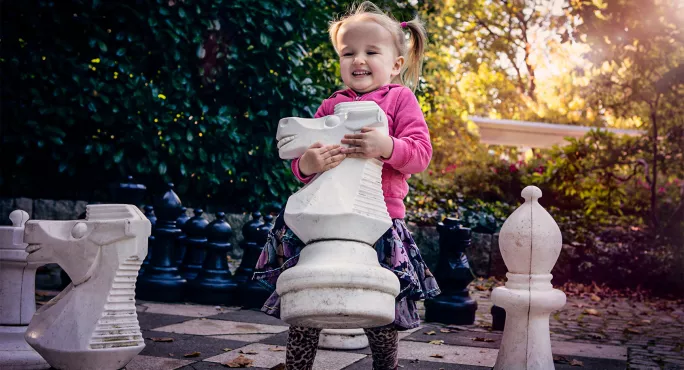Schools call on ministers to extend chess funding

Primary schools that took part in a government initiative to encourage more disadvantaged pupils to play chess have reported that it has been a great success.
Now they are urging chancellor Rachel Reeves, herself a former junior chess champion, to extend the one-off funding.
The initiative, launched in August 2023, offered grants of ÂŁ2,000 to 100 primary schools where more than 57 per cent of pupils received free school meals.
It aimed to kick-start regular chess activities; encourage those underrepresented in chess, particularly girls, to participate; increase participation in competitive chess; and provide information about best practice to the Department for Education.
DfE funding for chess
The money could be used to set up clubs, purchase chess sets, provide tutorials, provide online learning, cover the cost of trips to tournaments and or buy curriculum planning materials.
Visiting a US primary school in 2022, Rishi Sunak, who was prime minister at the time, described chess as âa great skill and really good for helping you thinkâ. Chess also dovetailed with Sunakâs policy of improving childrenâs numeracy through maths teaching.
Malcolm Pein is founder of the UK charity , which has over the past 15 years supported more than 2,700 state schools with lessons, clubs, equipment and training.
Mr Pein said the charity is working in 42 of the 100 schools participating in the government initiative, offering 30 weeks of one-hour-a-week tuition, plus equipment, materials, curriculum, training, workbooks and access to an online chess game.
He said the scheme was oversubscribed so the money was allocated on a first come, first served basis. In the schools the charity is working with, he said, âfeedback has been greatâ.
- DfE scheme: School chess to get cash boost
- Chess for learning: How I use a chess board in maths interventions
- Chess: Important teaching tool or unwelcome workload burden?
âSchools love it. Everybody gets 30 hours teaching, which works out at about 75p per child per week,â Mr Pein said.
Mr Pein said schools have been asking how they can continue their relationship when the grant funding runs out, but when asked by Tes, the DfE would not comment about the potential for future funding.
Chess âimproves self-confidence and gives children from deprived areas something that perhaps their friends canât doâ, Mr Pein added.
âAttendance is boosted because children donât want to miss their chess. And chess is a thing that children become very good at very quickly - and become better than adults.â
Jo-Anne Ling, early years lead and assistant head at Edward Wilson Primary School in West London, would like to see funding continue: âThe chess scheme has been really great as we are an estate school where not many children had much experience of chess.
âWe wanted to get a lot of girls involved. Initially when we started there was not a great deal of uptake. But the [Chess for Schools and Communities] charity came in offering teaching and pupils got the chance to go on outings.â
âReally valuableâ initiative
The school has attended a chess competition in Westminster City Hall.
Ms Ling said: âIt was really buzzing. They had a great time meeting children from other schools. The great thing is that a child in Year 8 can take on an older opponent. Players donât have to be the same age and that gives great confidence.
âWe can offer other experiences like football or tag rugby, but chess doesnât require any physicality, and it doesnât require a lot of equipment, setting up or screen time. I do hope the Department for Education can continue funding classes and teaching - that will really help us.â
Cassie Manly, the Sendco and inclusion lead at St Francisâ Catholic Primary School in Handsworth, Birmingham, said the initiative has been âreally valuable, helping children to learn how to win or lose with graceâ.
âThe groups [that played chess] were able to pass on their skills to other children, and eventually most of Year 6 would choose to play chess for indoor breaks,â she said.
âAny initiatives that support childrenâs social and emotional development in a structured way are always welcome in schools.â
For the latest education news and analysis delivered every weekday morning, sign up for the Tes Daily newsletter
Register with Tes and you can read two free articles every month plus you'll have access to our range of award-winning newsletters.
Keep reading with our special offer!
Youâve reached your limit of free articles this month.
- Unlimited access to all Tes magazine content
- Save your favourite articles and gift them to your colleagues
- Exclusive subscriber-only stories
- Over 200,000 archived articles
- Unlimited access to all Tes magazine content
- Save your favourite articles and gift them to your colleagues
- Exclusive subscriber-only stories
- Over 200,000 archived articles
topics in this article



